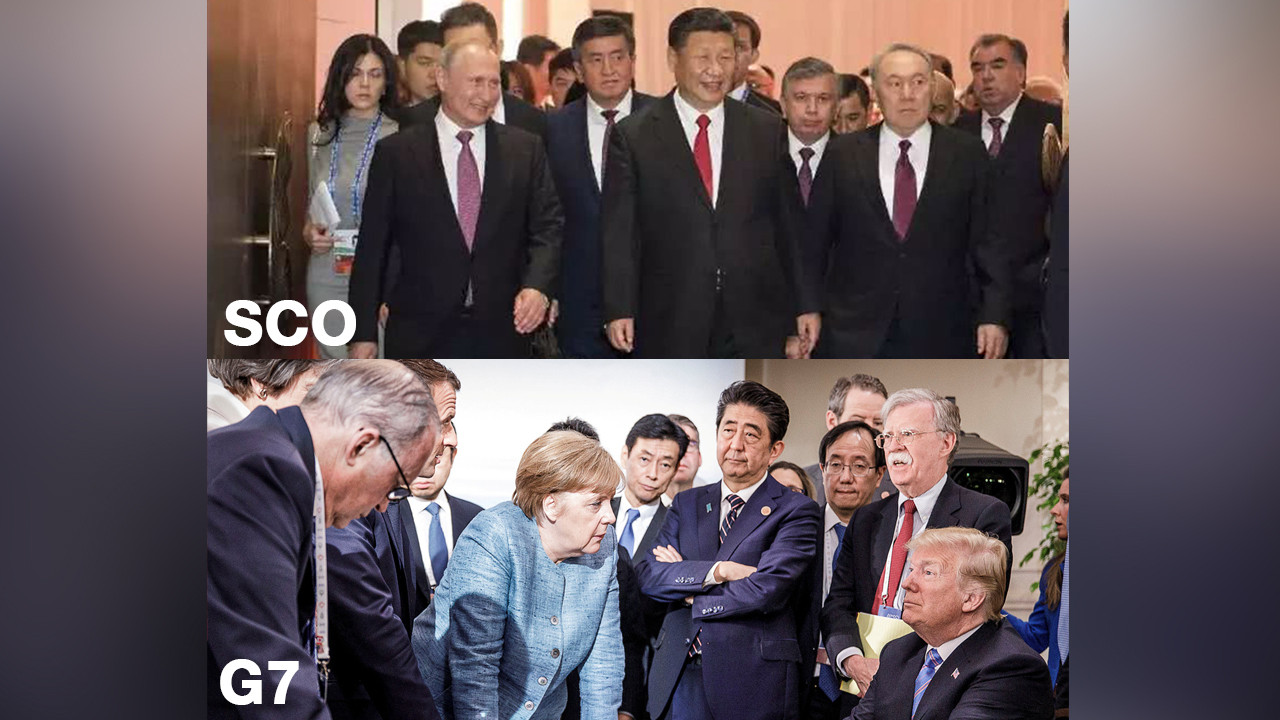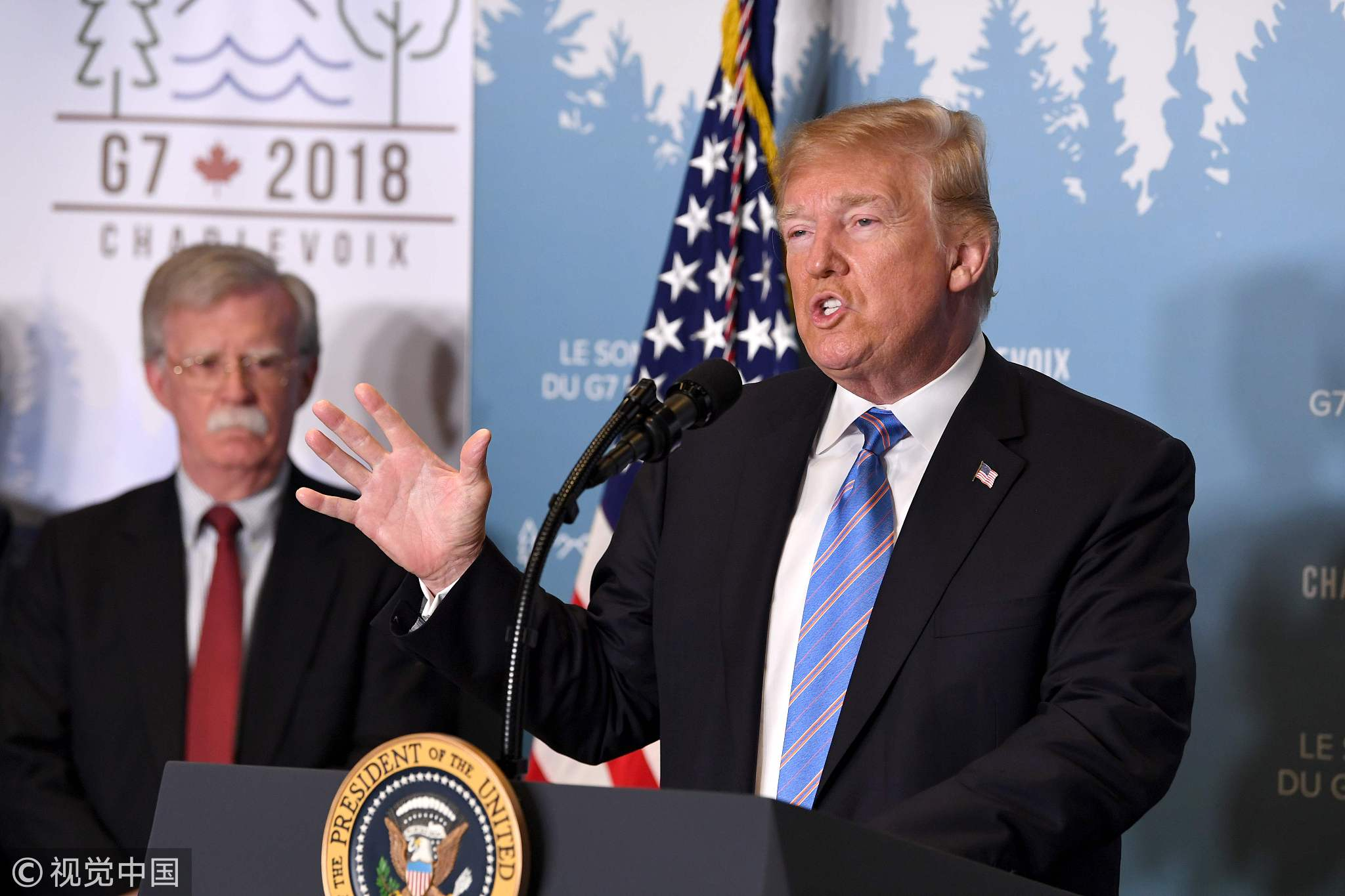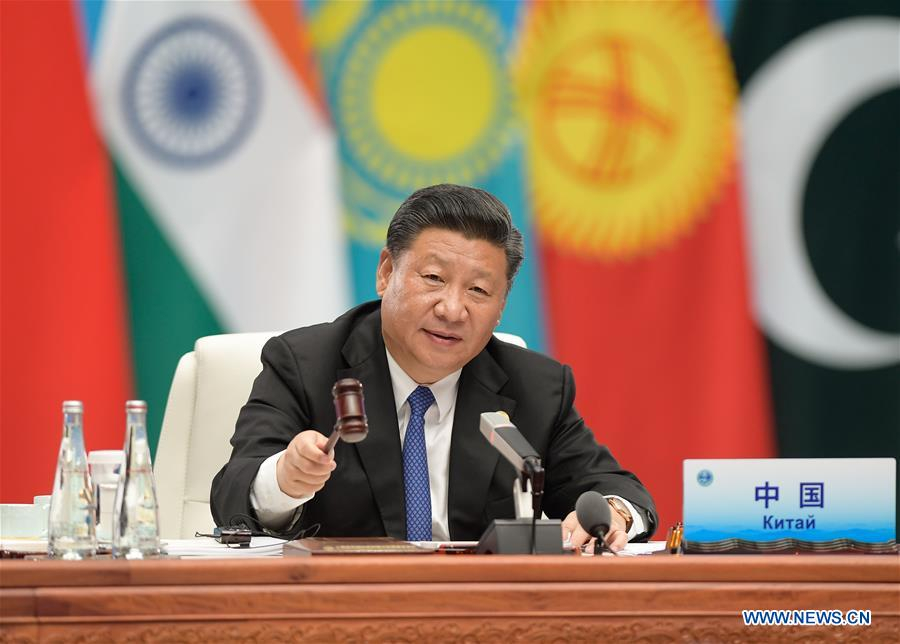
Opinions
23:23, 10-Jun-2018
Opinion: What does the unpleasant end of G7 reflect?
CGTN's Li Yunlong

Editor’s note: This article is based on an interview with He Weiwen, a senior fellow at the Center for China and Globalization.
Trump has again grabbed the world's attention as the US president has retracted his endorsement of the G7 joint statement, after the summit ended.
The reverse of his attitude is triggered by a statement that Canadian Prime Minister Justin Trudeau made during a news conference, saying that the US' imposing tariffs in the name of national security is "kind of insulting."
It seems that the seed of dissenting opinion between the US and the other G7 countries has been planted.
The US and the G7
An astonishing decision, imposing tariffs on imported steel and aluminum from the EU, Canada and Mexico, made by the Washington DC has aroused criticism around the globe, including member countries of G7.
Under the environment of a global trade war between the US and the EU, trade issues have obviously become the pivotal concern during the summit. And not surprisingly, the US and the G7 share a confrontational stance.
However, "this does not represent a breakdown of the relation between the two sides", says He Weiwen, a senior fellow at the Center for China and Globalization, "and the US is still part of the G7."
Economic issues or trade issues, to be exact, is only one of the main issues on which the G7 Summit focuses. Others include military issues, climate issues, etc.

June 9, 2018: US President Donald Trump speaks to reporters, during the G7 Summit in La Malbaie, Quebec, Canada./ VCG Photo
June 9, 2018: US President Donald Trump speaks to reporters, during the G7 Summit in La Malbaie, Quebec, Canada./ VCG Photo
In terms of the trade war, the US is not likely to turn its back on the EU. According to He, the status of the US being an ally of the EU will not change as, again, these two sides only have disagreements in terms of trade.
At the past G7 Summits, the US has kept a low-profile image without impulsive decisions. But, since President Trump put forward the "American First" foreign policy, the US appears to be not only high-profile, but more proactive.
For example, an agreement on addressing challenges that was affecting the growth of the world economy was reached at the 2016 G7 Summit. Likewise, leaders at the 2017 G7 Summit emphasized common endeavors to end the Syrian crisis, to fulfill the UN mission in Libya and to reduce the presence of ISIS in Syria and Iraq.
However, Donald Trump didn't agree with the final section of statement, of the G7 Summit this year, about commerce, and criticized his trade allies for treating the US unfairly. He even tweeted that the America is considering tariffs on imported automobiles.
The G7 and the SCO
Compared with another international-level summit taken place in Qingdao, China, the Shanghai Cooperation Organization, the contrast is striking as there are no such contradictions in the SCO.
During the SCO, Chinese President Xi Jinping has expressed that members of the SCO have unanimously opposed protectionism, the statement of which has echoed the content in the G7 communique. This means that free trade is in accordance with globalization and is acknowledged by most of countries.

June 10, 2018: Chinese President Xi Jinping delivered a speech during the 18th Meeting of the Council of Heads of Member States of the Shanghai Cooperation Organization (SCO) in Qingdao, east China's Shandong Province./ Xinhua Photo
June 10, 2018: Chinese President Xi Jinping delivered a speech during the 18th Meeting of the Council of Heads of Member States of the Shanghai Cooperation Organization (SCO) in Qingdao, east China's Shandong Province./ Xinhua Photo
Nevertheless, the fact that Trump still obstinately sticks to his own intentions may bring consequences.
He Weiwen says "if the country continues this way, the US would become increasingly isolated as the globalization is a tendency of time. But, meanwhile, as a superpower in the world, the power of the US cannot be underestimated because it may bring risks to multi-lateral trade".
It is intriguing to notice a proposal made by Donald Trump to appeal to Russia to rejoin the G7. But Russian President Vladimir Putin shows no interest as he states, while at the SCO, that Russia has never decided to leave the G7, but it's the truth that the economic vitality of the SCO has exceeded that of the G7.
Under such a background, Russia has obviously taken up a strategically active position, and Putin is more willing to be a participant of the SCO.
As He Weiwen says, the Russian president recognizes the SCO's adherence to the WTO rules, globalization and trade liberalization and deems that achievements could be fruitful through cooperating with SCO members.

SITEMAP
Copyright © 2018 CGTN. Beijing ICP prepared NO.16065310-3
Copyright © 2018 CGTN. Beijing ICP prepared NO.16065310-3